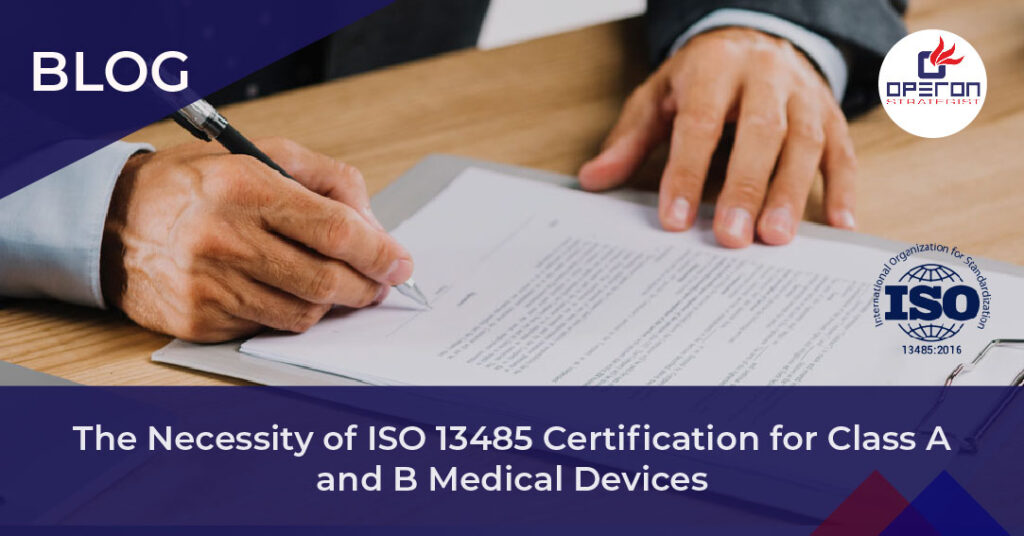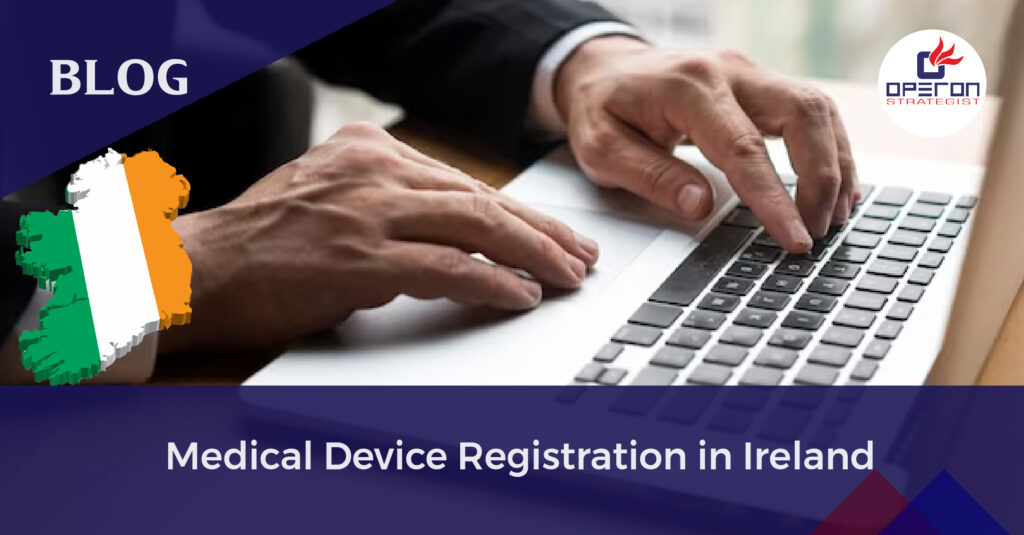The Necessity of ISO 13485 Certification for Class A and B Medical Devices- Overview
ISO 13485 sets the standard for quality management systems in the medical device industry. For Class A and B medical device manufacturers in India, it supports compliance with CDSCO requirements like Form MD-7, even if not always mandatory. It provides a clear framework to ensure product safety and process consistency from development to delivery.
Adopting ISO 13485 boosts product quality, streamlines regulatory approval, and builds trust with authorities and customers. It also prepares manufacturers for future market expansion by aligning with global regulatory expectations.
Looking For a Medical Device Regulatory Consultant?
Understanding Medical Device Classification
In India, medical devices are classified into four categories—Class A, B, C, and D—based on the risk associated with their use. Class A represents the lowest-risk devices, while Class D includes those with the highest risk. Class A and B devices generally include items like surgical instruments, thermometers, and some diagnostic equipment.
Read more about the CDSCO classifications for medical devices
The Role of ISO 13485 in Medical Device Compliance
ISO 13485 is a globally accepted standard that defines quality management system (QMS) requirements for medical device manufacturers. While Class A and B devices are considered low-risk, aligning with ISO 13485 ensures consistent product quality, regulatory compliance, and safer manufacturing practices. In India, it supports CDSCO licensing processes like Form MD-7 and strengthens your readiness for audits. Even if not mandatory in every case, ISO 13485 certification builds trust, streamlines approvals, and improves both domestic and international market access.
Is ISO 13485 Mandatory for Class A and B Devices?
While ISO 13485 ‘Certificate’ is not legally required for Class A and Class B products, it becomes essential when seeking compliance with certain regulatory frameworks. For example, in the European Union, ISO 13485 certification is often necessary for CE marking. In the Indian scenario, The ISO 13485 ‘Certification’ from the notified body is not required but the QMS system as per ISO 13485 and the Drugs & Cosmetics Act 1940 is required which has to be demonstrated during the audit for manufacturing license for class A and B licenses.
Does CDSCO Form MD 7 Require an ISO 13485 Certificate?
CDSCO Form MD 7 is the application form used by manufacturers to obtain a license to sell, stock, exhibit, or offer for sale or distribution of Class A and B medical devices. Although ISO 13485 certification is not explicitly mentioned as a mandatory requirement for this form, the QMS framework established by ISO 13485 serves as the basis for demonstrating compliance with the quality requirements set out by CDSCO during the audit.
Therefore, while the form itself may not mandate ISO 13485 certification, obtaining the certificate significantly strengthens the application and simplifies the approval process, making it a best practice for manufacturers.
Click to Understanding CDSCO MD 7 and MD 9: Process and Regulatory Compliance
The Importance of Medical Device Quality Management Systems (QMS)
A QMS is the backbone of consistent product quality and safety in medical device manufacturing. For Class A and B devices, a well-implemented QMS ensures that every step in the design, production, and distribution processes is controlled and monitored. ISO 13485 system ( Not necessarily certificate) provides a structured approach to establishing a QMS that meets global standards, thus boosting the credibility and marketability of the devices.
Operon Strategist: Your Partner in Regulatory Compliance and Project Management
Navigating the complexities of medical device regulations can be daunting, especially when it comes to ensuring compliance with ISO 13485 and CDSCO requirements. This is where the Operon Strategist steps in. As a leading medical device regulatory consultant and turnkey project management company, Operon Strategist offers end-to-end solutions to help manufacturers meet regulatory standards, including ISO 13485 certification and CDSCO compliance. With expertise in setting up manufacturing plants and implementing QMS, Operon Strategist ensures that your medical devices are not only compliant but also positioned for success in both domestic and international markets.
Get Started with ISO 13485 QMS Implementation Today!
While ISO 13485 certification may not be explicitly required for all Class A and B medical devices, it is highly recommended for ensuring regulatory compliance and improving market access. When applying for CDSCO Form MD 7, having an ISO 13485-compliant QMS in place can be a key differentiator that streamlines the approval process. Partnering with a consultant like Operon Strategist can further ease the regulatory journey, providing you with the support needed to achieve and maintain compliance.
For more information on how to ensure your medical device complies with ISO 13485 and CDSCO regulations, or to learn more about Operon Strategist’s turnkey project management services, contact us today.



